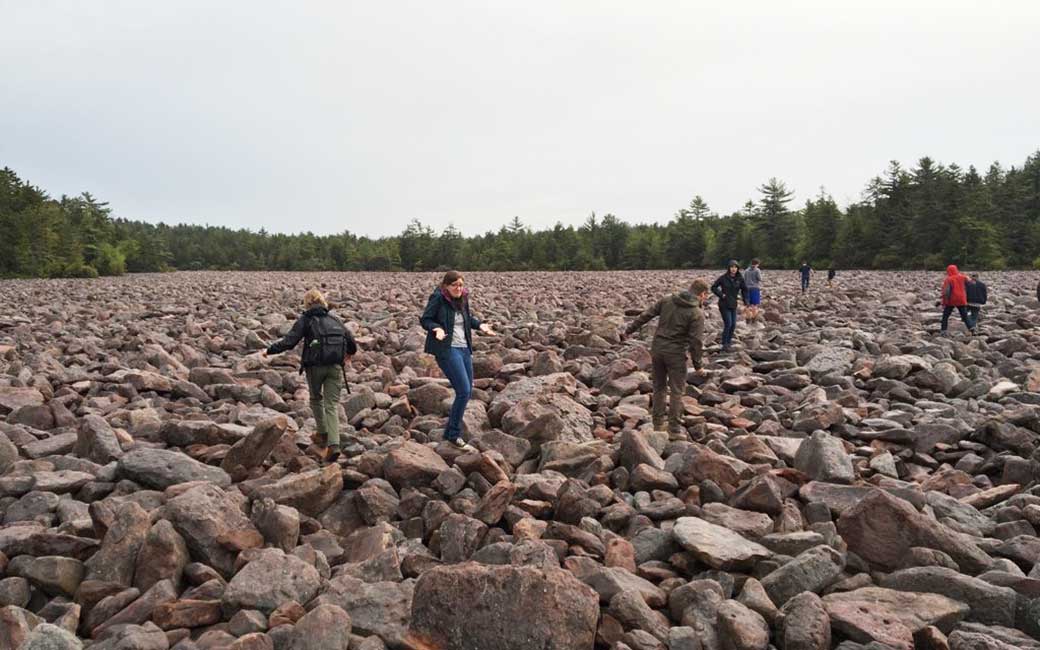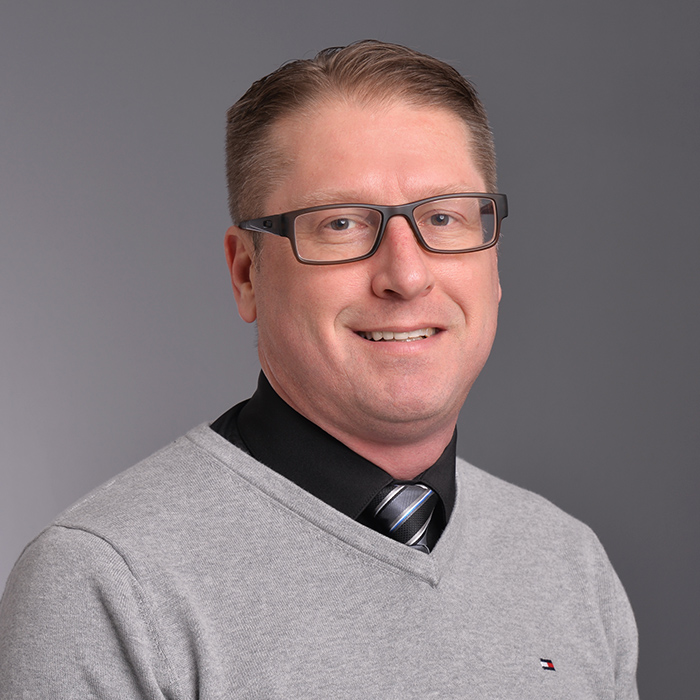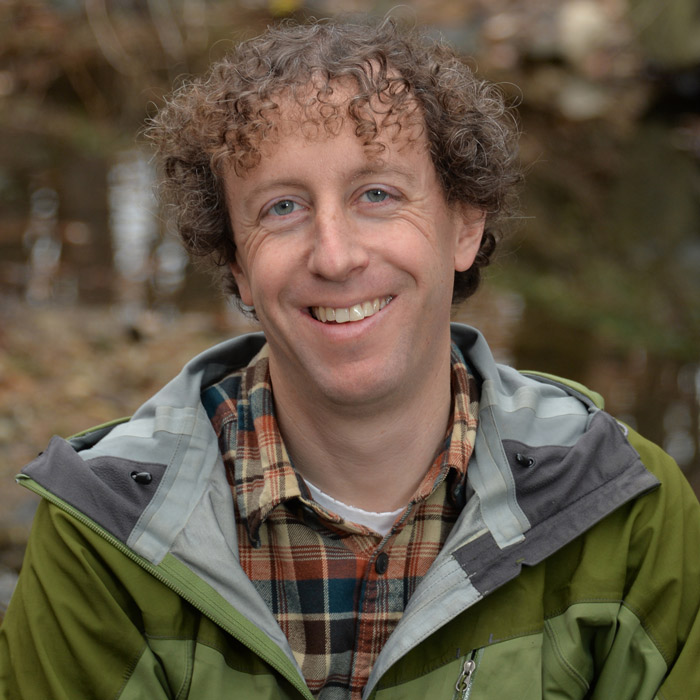Moore, Hermann awarded nearly $350,000 NSF geosciences education grant
TU faculty raising the profile of geoscience careers
By Megan Bradshaw on February 10, 2017

Geoscientists address many of the challenges that face our society: climate change, clean water, energy and mineral resources, natural hazards like earthquakes, volcanic eruptions, flooding, and environmental remediation. But based on projected job growth and retirements, the U.S. Bureau of Labor Statistics and the American Geosciences Institute has predicted a shortfall of 135,000 geoscience graduates by 2022.
Towson University Jess & Mildred Fisher College of Science and Mathematics faculty Joel Moore and Ron Hermann received a $348,182 grant from the National Science Foundation (NSF) to promote geoscience education and career paths and help address that shortfall. They are working in collaboration with Dean David Vanko as well as Rommel Miranda (science education) and other geosciences faculty Rachel Burks, Wendy Nelson and Amy Williams.

Events like the finding of new helium gas reserves (addressing concerns about depleting
supplies) and recent deadly earthquakes in Italy keep geoscientists front and center.
According to the U.S. Bureau of Labor Statistics, job growth in the industry is projected
to be 50 percent higher than average.
Moore and Hermann’s grant has two main goals—to strengthen recruiting and retention into the three geoscience majors at TU and to determine the effectiveness of recruiting and retention practices to publish the findings for the broader geoscience community.
The geosciences program (part of the Department of Physics, Astronomy and Geosciences) offers three degree options—geology, environmental science-geology and earth-space science—which feature small classes taught by accomplished faculty, excellent facilities and abundant research opportunities as well as frequent trips into the field.

Presently, Hermann and Moore are ramping up recruiting efforts via partnerships with area high schools and community colleges; improving introductory geoscience courses to incorporate more hands-on, active learning practices; and publicity and communications aimed at raising awareness of the geosciences at the K-12 and college levels.
The pair are working to expand academic advising beyond one-on-one interactions between students and advisers and to build stronger connections between TU geoscience students and the broader geoscience community. They contend they can retain geoscience majors when those students can better envision their career options, are more motivated for classroom success and have a foundation for future networking opportunities.
The NSF grant will support two field trips per year from 2015 to potentially 2019. Already in 2016, students and two faculty members took an overnight trip to Pennsylvania to learn how geology shaped the Battle of Gettysburg, saw evidence of when mile-thick ice sheets covered northern Pennsylvania 20,000 years ago, and visited boulder fields created by frost-caused erosion near the ice sheet.
Additionally, each year of the grant, a new cohort of four to six students will receive a stipend to work on research with a faculty mentor. The students will learn the scientific process through hands-on experience in the laboratory and the field. The grant also contains funds to send students to professional scientific meetings to present their research results.
To date, 16 presentations or submitted abstracts have resulted from this grant, including six led by undergraduate students and nine with undergraduates as co-authors.
This story is one of several related to President Kim Schatzel's priorities for Towson University: TU Matters to Maryland